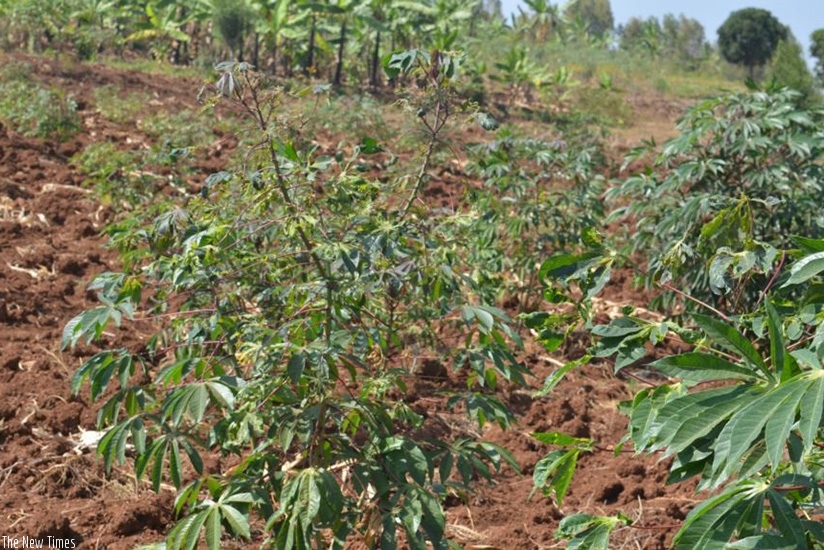MONICA KAYOMBO, Lusaka
MINISTRY of Agriculture Permanent Secretary Green Mbozi says Cassava Brown Streak Disease (CBSD) has potential to affect the country’s food security if left un checked. Speaking yesterday during the stakeholders meeting in Lusaka, Mr Mbozi said the disease poses a significant threat to production and people’s livelihood. He said the government through his Ministry of Agriculture, Disaster Management and Mitigation Unit ( DMMU) and Zambia Agriculture Research Institute ( ZARI) and other stakeholders are doing everything possible to curb the disease and prevent it from spreading to other areas. “Cassava production is second to maize production. In addition, the quantity of cassava production by our farmers is more than the requirement for human consumption. The crop has multiple uses some of which include brewing, mining, bio fuel and sanitation industrial use,” he said. Mr Mbozi said it is important for cooperating partners to collaborate with the government and see how best they can collaborate to contain CBSD. He said Cassava is important to Zambia’ a food security because it is drought resistant and is used as a staple food especially in the Northern part of the country. He said through the recent launch of the Cassava second national development strategy is meant to make Cassava more viable and be able to contribute to wealth creation food security for improved livelihood by 2025. “Traditionally, Cassava is grown in a few areas but recently, the production of cassava is increasing in Eastern, Copperbelt and Lusaka Provinces. The reason for that is due to the multiple uses that cassava has,” Mr Mbozi said. He said in the past cassava was mainly used by people in Northern and Luapula provinces for making nshima and as a snack. He said, there is need for more people to join in growing cassava. He said CBSD has the capacity to damage the entire field and lead to food insecurity.
He said in the past, those that relied on cassava production were saved due to food diversification. He commended Centre for Agriculture Bio Sciences International (CABI) for taking up the initiative to carry out research in 2021 and later sensitising the farmers on how to prevent and manage the CBSD. He said the meeting was important as the government looked forward to the recommendations on how to curb the disease. Mr Mbozi said the distribution of CBSB resistant sticks is a long term measure but that there is need to find the short term solution to the problem.
Mr Mbozi said he was confident that the joint effort would help curb the disease. CABI Regional Director Noel Phiri CBSD has resulted into food insecurity to a large number of people especially in Northern Province. He said the type of CBSB that is in Northern is lethal as it damages the leaves and the tuber and makes the crop un edible. “It is more devastating when it attacks the roots. In other countries like Uganda you may have some varieties that are not showing the symptoms in the roots,” he said. He said the campaign that his organisation working with the Ministry of Agriculture, DMMU, ZARI and other stakeholders was aimed to create awareness among various stakeholders on the effects of CBSD in order to advocate for funding to support the affected farmers. He said over 250 farmers were engaged during the campaign on the impact of CBSD. “We supported the distribution of cassava sticks through ZARI. “The Ministry of Agriculture supported us in testing the cassava sticks to ensure that they were clean and they also supported us by training the farmers, in the processes of multiplying the cassava sticks” Mr Phiri said.
He said DMMU partnered with Food Agriculture Organisation and provided planting materials for the farmers. He said the main aim of the distribution of the Cassava cuttings was to reduce the spread and that over 2,000 plants were distributed in 2021. “We call upon the Government to support and ensured good security among other things,” Mr Phiri said.


